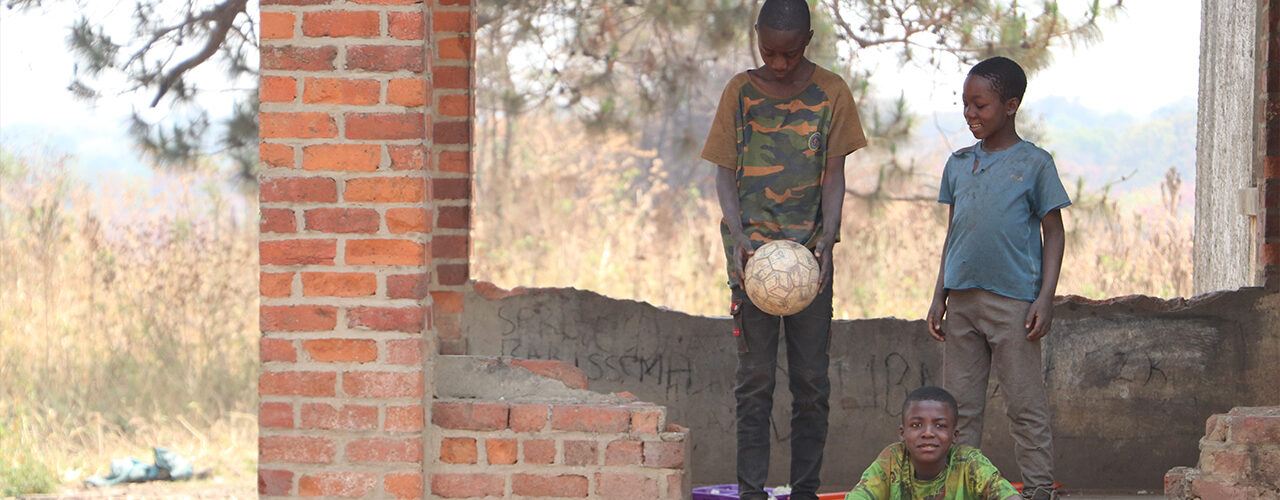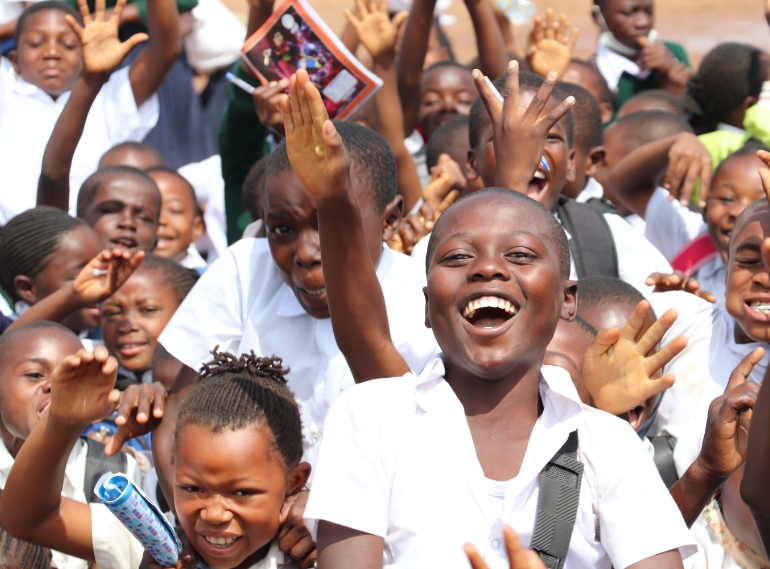Safeguarding Children’s Rights
ASM and child labour
At the heart of the discussion around ASM cobalt stands the issue of child labour – brought to the public’s attention by Amnesty International’s 2016 report: This is what we die for. With the copper-cobalt belt characterised by widespread poverty, 11% of children find themselves working in order to contribute to household incomes or help cover (their own) school fees.
In 2017, Berkeley University conducted a comprehensive community survey of 2,635 households in 150 cobalt mining communities, finding that about a quarter (23%) of these children (less than 5.000 children) work in or around cobalt mines, digging for transporting or processing the battery mineral. It is important to note, that the same study found that the majority of child labour in the region occur in agriculture (49%) or working as hired domestic labour (30%).
Working towards child labour free artisanal mining operations
To prevent children from working inside artisanal cobalt mines, the FCA works with local cooperatives and civil society to establish effective controls and monitoring mechanisms to identify cases of child labour and prevent children from working inside their operations.
In accordance with the OECD Due Diligence Guidance and children’s rights experts, we are, however, not promoting a mere ban of child labour from artisanal sites but advocate instead for the full remediation of child labour cases, placing the child’s physical and mental welfare at the centre of our efforts.
To prevent and mitigate the occurrence of child labour inside the artisanal mining sector in the long term, we need to address its root cause: widespread poverty. Consequently, the FCA focuses on 1) improving working conditions in artisanal mine sites and 2) promoting the economic diversification of the region, both with the goal of increasing household incomes. Understanding that next to economic development, a cultural change needs to occur, the FCA began implementing a long-term campaign to remediate child labour on mine sites and in the mining communities around them.

Building a scalable and replicable child labour remediation mechanism
Led by FCA member Save the Children, we focus on building the capacity of local partner organisations such as Maison Kwetu to co-develop and manage an integrated child labour remediation mechanism. This case-management system takes the individual circumstances of the child in question into account, enabling access to primary and secondary education as well as medical and psychological support. Understanding that youth, 15 years and older, are most likely to seek employment inside the mines, the FCA is aiming to increasingly provide access to vocational training, internships and job opportunities.

Enhancing school enrollment into primary and secondary education.
School Electrification Project
The Signify Foundation project with the objective to install solar panels and distribute solar libraries at schools, one marketplace and one soccer field in the Kolwezi neighbourhoods of Kasulu and Kapata, was kicked-off late 2020. In collaboration with the provincial minister of Energy, the Mayor of Kolwezi and the Division of Education, 10 public schools, concerning 6000 pupils were selected and approached for the project. After putting significant effort into discussing with local authorities, gathering information, and sorting through applications, we have officially selected the schools that will receive the panels. After some delays, equipment is currently being shipped to locations. The school electrification project is for the benefit of teachers, pupils and their families, primary and secondary schools Kasulu and Kapata.
This is a great initiative to be part of. Britishvolt has a very clear and defined ambition to create one of the best-in-class ESG frameworks. By joining the FCA we are aiming to reduce environmental impact, improve working conditions for miners and support action that redirect children to school and education in the Democratic Republic of Congo.
Britishvolt believes that it’s the responsibility of the entire battery industry, including manufacturers, to ensure that everyone involved is treated with respect and given the right opportunities. Collaboration is of vital importance to ensure success for all.
